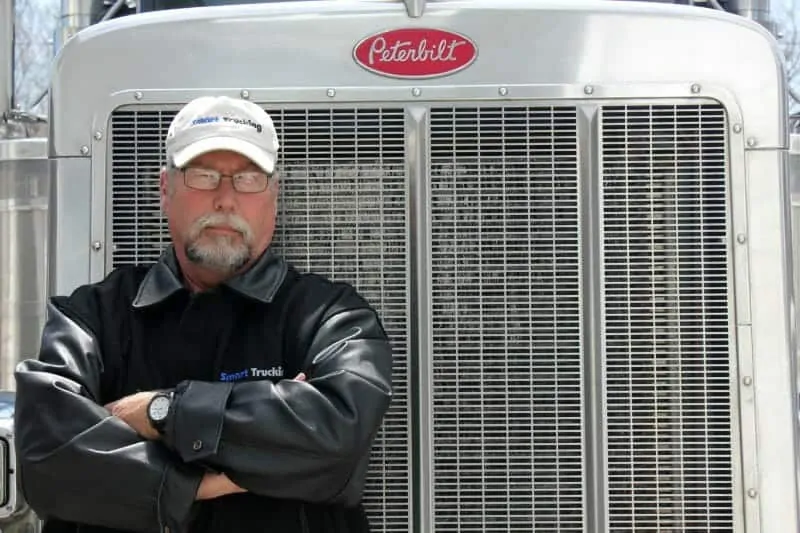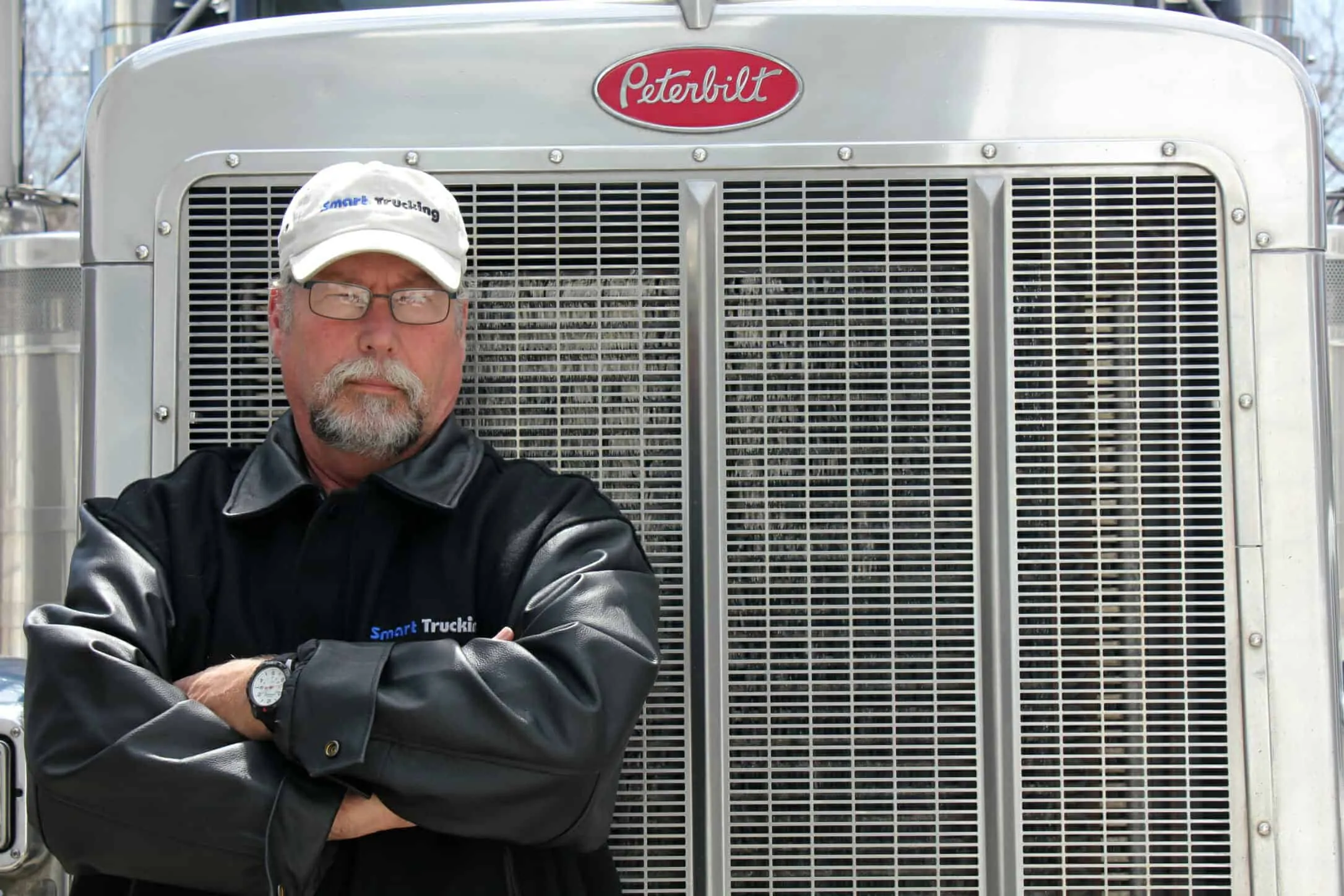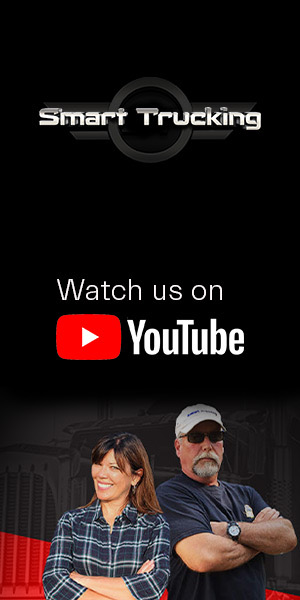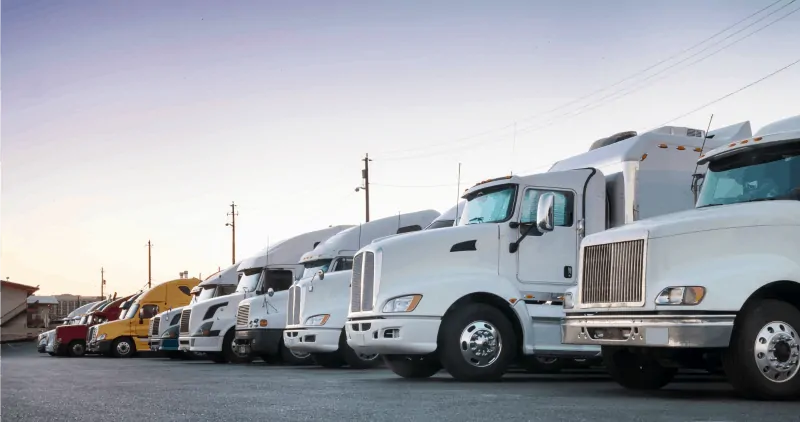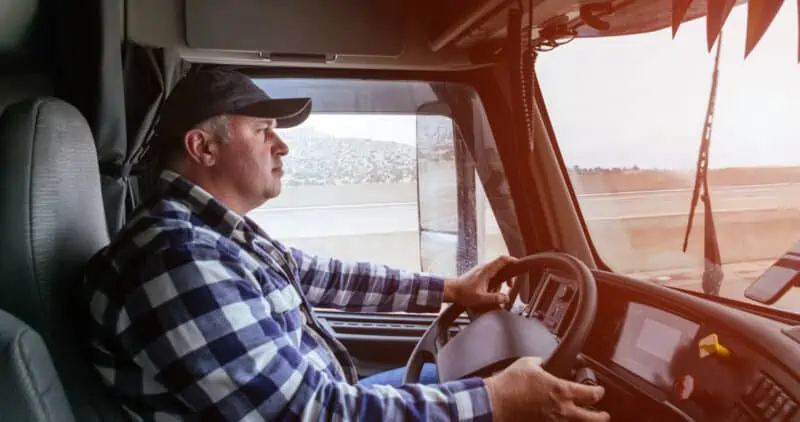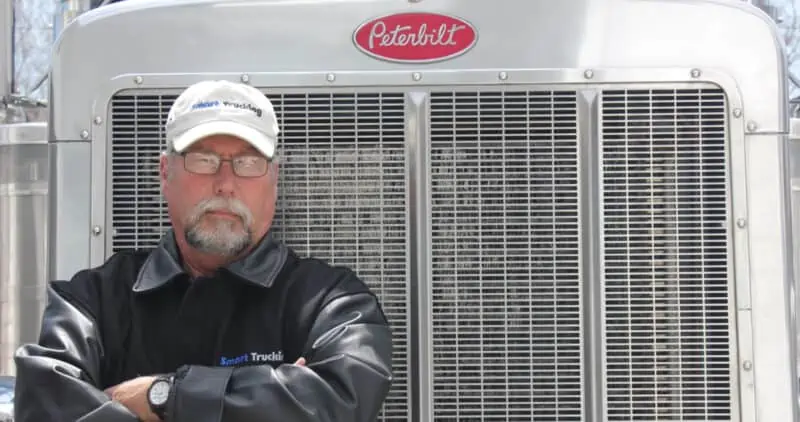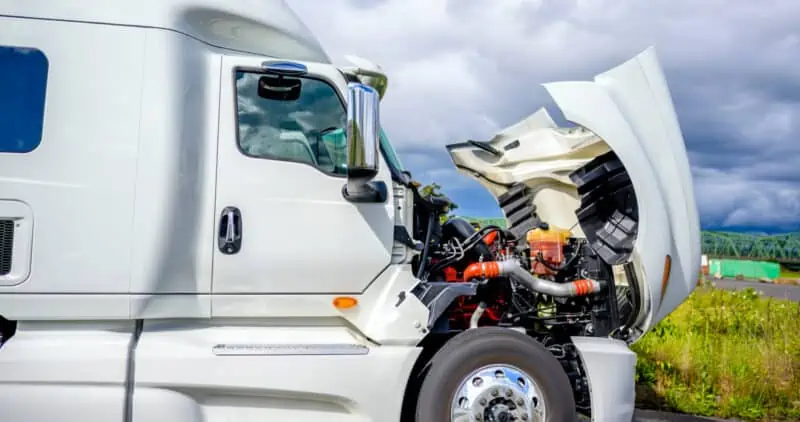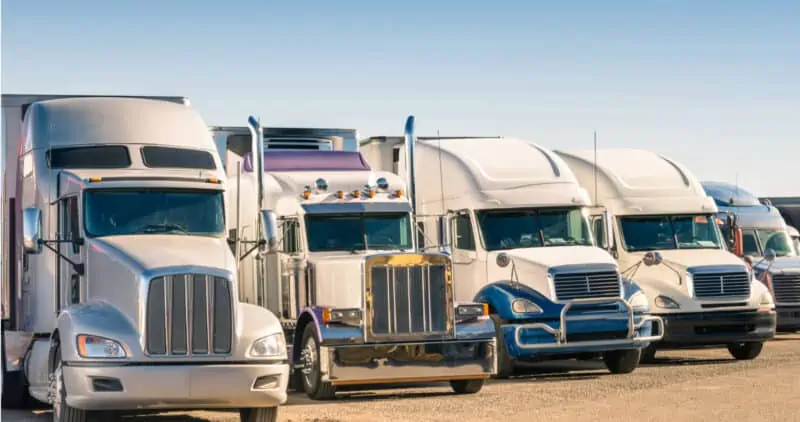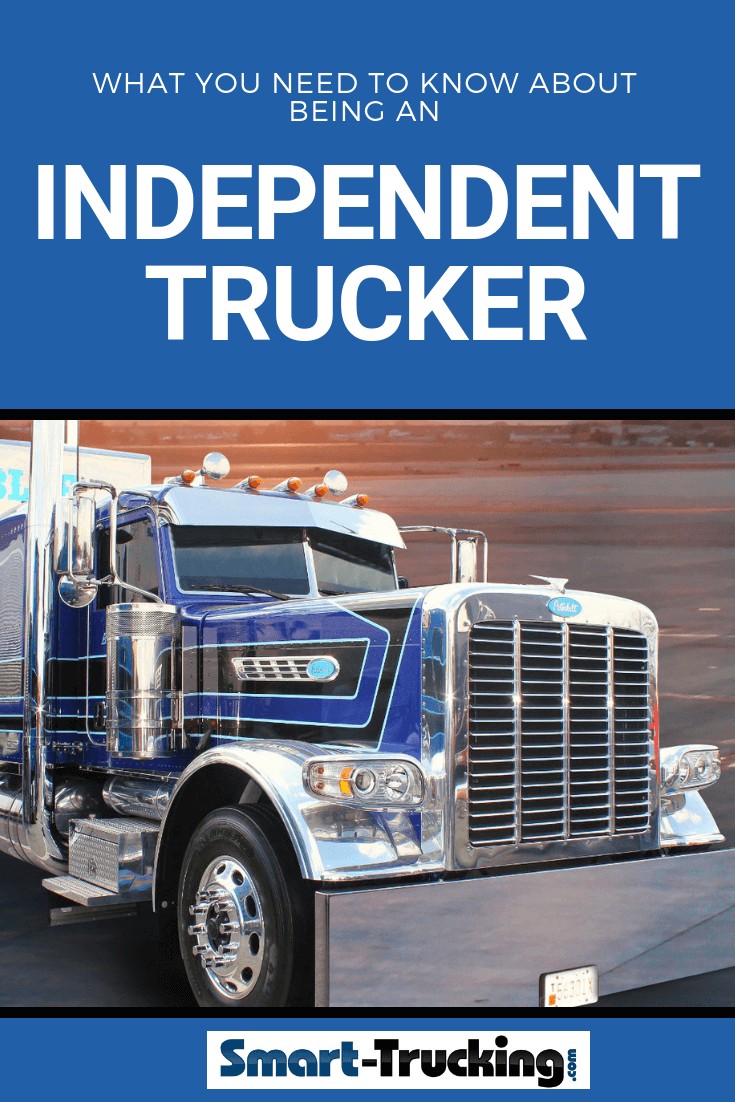
The money was really good back then. There were no load brokers involved. No middlemen to take a cut.
I worked directly for a produce buyer and was paid for the delivery the moment I bumped the dock.
I had the freedom to come and go when I wanted and set my own schedule. There were no dispatchers involved. I was able to pick and inspect the equipment that I wanted to run. I was able to choose the type of work that I wanted to do.
Being an independent trucker came with its own set of responsibilities but it was worth it to have the freedom to choose what equipment I wanted, run the routes I liked best, and enjoy a handsome profit.
Things have changed somewhat since then and while being an independent trucker comes with a lot of setbacks, I still think it’s worth the risks for most truckers.
Being an independent is not easy. It’s much tougher than it used to be. There are piles of paperwork, a whole mess of responsibilities, financial obligations and a lot of risks.
Here are some things to consider if you’re considering becoming an independent trucker.
Extra Costs Independent Truckers Incur (That Owner Operators Don’t Have)
- You’re responsible for getting your own authority
- You’re responsible for registration, filing and payment of fuel tax and road tax
- You’ll need state permits
- Equipment and load insurance
- Licence plates are your responsibility
- All truck and trailer related costs lie with the independent contractor
Related > 7 Tips For Buying Your First Truck as an Owner Operator
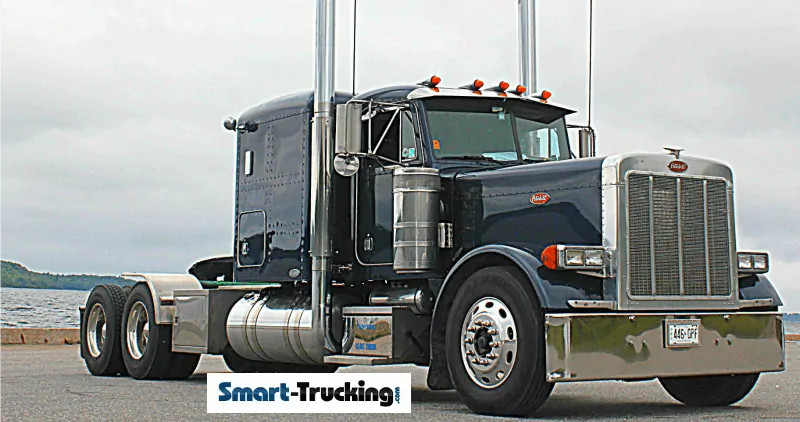
Can Be Lucrative
While you are directly responsible for all paperwork involved in running an independent trucking business, there is often no middleman involved to take a cut of the profits, nor dispatchers and management to deal with. This is a definite perk to this trucking style.
Some serious money can be made by the independent trucker if you can find a nice niche market.
But good things don’t often last forever, something we’ve learned from personal experience in the trucking business.
Cash Flow
Being an independent trucker can be profitable, but it can also be very expensive to keep your business moving along. It’s a good idea to have an operating line of credit of at least $25,000 to help out with slow A/R. I don’t personally recommend factoring services for any length of time, as they are very expensive.
If you’re running over the road like I was, and one customer hasn’t paid on time, it can be enough to do some damage to a single independent trucker.
You can run on your credit of course, but also be prepared to go to court to fight for monies owed.

Budget for Maintenance
It’s important to develop a maintenance schedule and adhere to it as closely as possible.
Preventative maintenance is of the utmost of importance.
Mechanical surprises are costly. Be prepared for a big repair bill at some point. They will inevitably happen. Have a repair cash account with money set aside for the unexpected.
Try to Snag Freight Overflow
Seeking out local big trucking companies and establishing a good relationship with them is a good idea.
They often will have freight overflow which they will contract out to smaller carriers or independents. They normally take a small cut of the profits and an independent can keep busy during slow freight times.
Know Your Operating Costs
It’s important to know your operating costs to make sure you’re remaining profitable. Although the cost of a load may sound appealing, it’s vital to work the numbers to be certain you’re making money on the deal.
Related > How to Calculate Operating Cost Per Mile
Get Paid on Time
Customers can be notoriously slow payers, especially for one truck operations. Slow accounts receivable can be devastating to a one truck operation.
Collecting your money is a huge part of staying solvent. It doesn’t take very long and you can get quite far behind if you’re not careful.
Be sure you’re collecting your money promptly.
There’s ALWAYS Someone Else Who Will Undercut You!
Rates are often undercut by other companies who will do the work cheaper. It doesn’t mean the service will be better, but a cut rate is often attractive to a shipper. Everyone likes to save money. Know how ‘low you can go’ and still turn a profit.
Know when to ‘fold ’em if the rates get too low.
Customers often have high expectations of independents, sometimes impossible to meet the expectations, such as expedited delivery times.
With the hours of service, truckers must adhere to, this can lead to an independent unable to meet the customer’s needs, thus the customer may turn to a larger trucking company with team service.
Try to work out a reasonable agreement and schedule with your customer when initially getting started. Don’t let any customer run you into the ground or jeopardize your authority.
It is also possible that your customer may have more freight than a single independent can handle. Don’t be surprised if your customer decides to drop you and seek out a larger carrier who can handle all their freight needs.
Avoid Verbal Agreements
As a word of caution, avoid verbal contracts.
It can be difficult to secure a written contractual agreement with a customer. Many like to go on a casual verbal agreement.
A verbal agreement may or may not hold up, should there be legal issues, but a written contract is much more solid from a legal standpoint.

Avoid Load Brokers
Every once in a while, you’ll get in a situation where you may have to use a load broker. Be selective.
There are good load brokers out there. Just be very careful with whom you choose to load for. No one can afford to lose a large % of a load, to a load broker who takes a huge cut of the load rate.
Load brokers can be notorious for being untruthful about the % they are taking for a cut. They may say they are taking 5 or 8%, where in reality they are probably taking 15-20% of the load rate, maybe more.
So when you can, stay away from load brokers.
Setting Your Schedule
You will be able to set your own schedule, but sometimes, your customer sets it for you. When customers are shut down for holidays or if business is slow, the independent can find himself without work.
If the customer’s patterns are predictable, the independent can follow suit and take time off at the same time. If not, this can cause problems.
This is a time when taking overflow from another carrier can be a good solution.
Launching a Lawsuit To Collect Accounts Receivable May Happen
If the customer doesn’t pay, it’s up to the independent to pursue the customer legally.
Hiring a lawyer can be expensive. Be sure to run a credit check on your customer before doing business with them and periodically during your working relationship with them, to ensure they don’t have a cash flow issue or worse.
Related > Legal Help For Independent Owner Operators
What is the Difference Between an Owner Operator and Independent Trucker Contractor?
An independent is an owner operator, but in the industry, an independent has his own operating authority, insurance, permits and arranges his own loads and solicits customers. He does everything and also owns his own trailer.
An owner operator, on the other hand, is normally contracted to a just a single trucking company.
In this case, the company owns the trailers, arranges for the freight, insurance, permits and uses their authority.
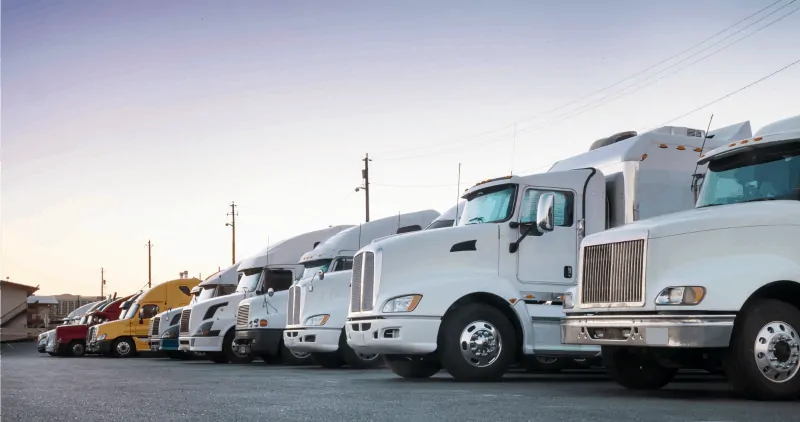
How to Become an Independent Owner Operator
It’s a pretty straightforward process on the surface but establishing yourself as a successful independent trucker can be more complicated than you’d think.
I recommend that you have a thorough grasp on the state of the economy and the present health and trends of the trucking industry.
It is best if you have a niche market that you feel is lucrative. You need to be able and willing to service this customer well.
There are still markets out there who still want the individualized service that only an independent trucker can offer.
The Basics (To Get Started)
- First, assess whether your lifestyle accommodates for the demanding work schedule that being an independent entails.
- Get your finances in order. Make sure you can afford the responsibility of establishing your own business. Clear up any debt and have a cushion in case any of your routes don’t work out. Have someone do the math (or have a qualified person do the math with you), to ensure that your plan is viable and profitable.
- Have a clean credit record is always best. Don’t borrow from a credit line when you don’t have the money to pay it off. You can be left holding a large debt, should you decide to get out of the business. You don’t want to have to continue to work, just to pay off a debt. A large debt may be impossible to pay off.
- Buy proper insurance. Consult with your insurance company about auto, life and disability insurance so you can be certain you’re covered in the event of an accident.
- Buy your own truck and trailer. Be sure to buy a truck that suits your preferred type of work and is dependable. It’s a major investment and you don’t want it in the shop while you’re trying to build your business.
- Get a contract in writing. It will also help with securing financing for equipment. Don’t be locked into long-term contracts which you may not be able to service, or into extended term equipment financing which extends beyond the life of the truck.
- Be prepared to hustle. You need to actively find new loads and be prepared to lose out to bigger carriers. It’s a dog-eat-dog business and companies are always looking for a cheaper route.
- Have a PLAN B and escape plan. At any given time, have an escape plan from the business, which allows you to get out of the business in a short time frame, should the need arise at any time.
- Be confident in your choices. Think things through and do your research. Have a team of professionals you can rely on, should you need their services and expertise. (lawyer, accountant, experienced equipment salesman)
You’ve got to love trucking and got to be prepared to be at work. Being an independent trucker is a big commitment, not one to be taken lightly.
Related > Semi Truck Financing: A Practical Guide For the Owner Operator
Do I Recommend Being an Independent Trucker?
What’s the one thing you should know about being an independent trucker? That you might love it or you might hate it.
Would I recommend being an independent trucker? That entirely depends on you.
Running on your own authority these days and even many years ago, wasn’t for the faint of heart. Independents are more scarce than ever before.
There are fewer and fewer of independents who are running on their own authority because the mega carriers scoop the majority of the freight by cutting the rates.
Slowly, independents seem to be losing more and more of their grip on the contracts that they used to have.
But it’s still possible to do.
There are still niche markets. The produce market, for instance, hasn’t been particularly badly hit by the big carriers because most of their drivers can’t keep track of the loads properly and there are big freight claims.
Big trucking companies often can’t provide the care needed for hauling temperature sensitive goods.
If you’re at the stage in your trucking career where you’re ready to take the next step, it can be a very lucrative step if you’re careful and you do it well.
